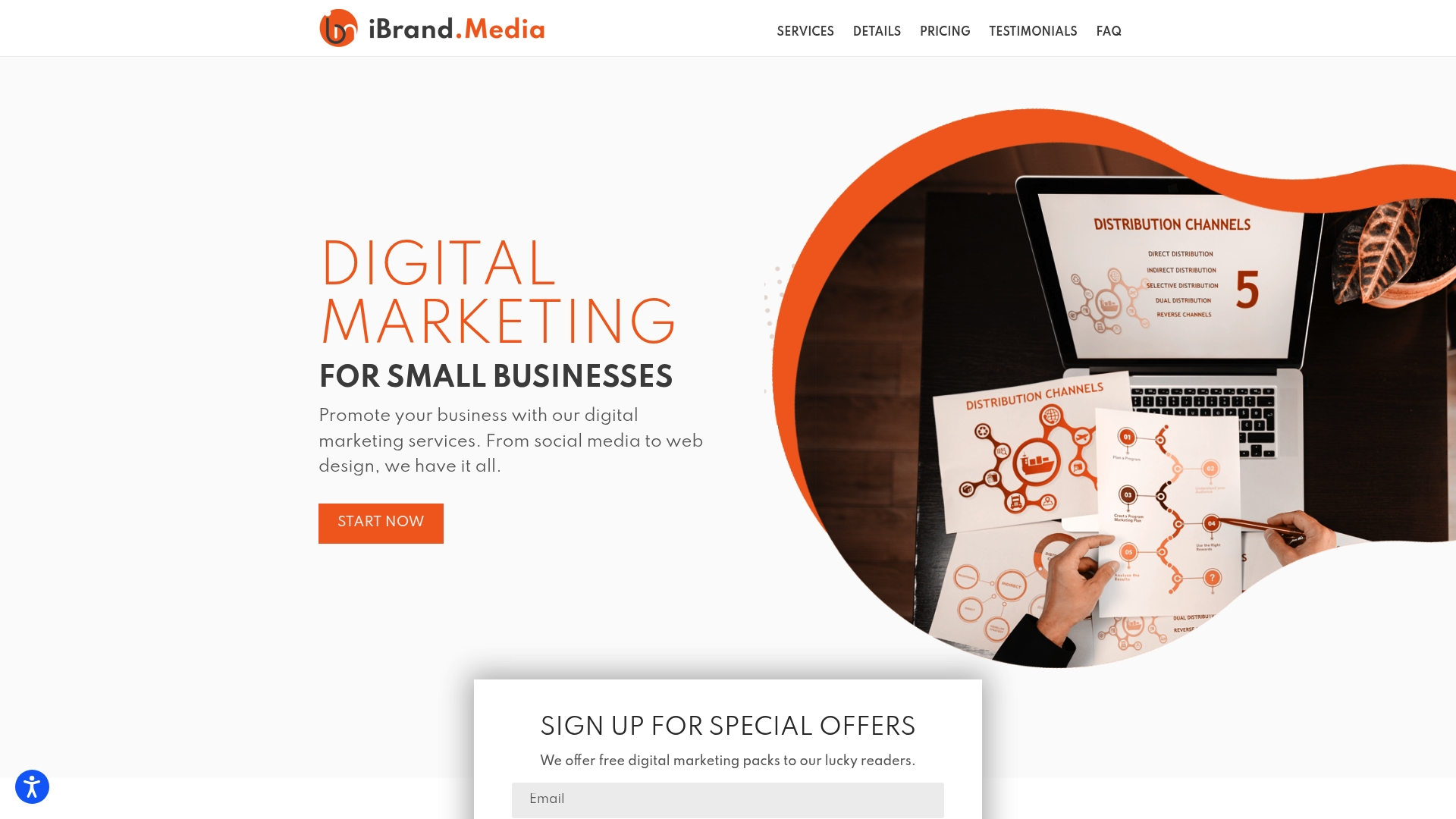Every website owner wants higher rankings, but understanding the basics of on-page SEO can make all the difference. Research shows that well-executed on-page techniques can boost your site’s visibility by as much as 50 percent. Mastering these fundamentals is the key to attracting the right visitors and keeping them engaged. If you want to improve your search presence and connect with your audience, learning how on-page SEO works will set a strong foundation for your online success.
Table of Contents
- Understanding On-Page SEO Fundamentals
- Essential On-Page SEO Elements Explained
- How On-Page SEO Impacts Search Rankings
- Step-By-Step On-Page Optimization Strategies
- Common On-Page SEO Mistakes to Avoid
Key Takeaways
| Point | Details |
|---|---|
| On-Page SEO Fundamentals | On-page SEO optimizes web pages to enhance search rankings through keyword integration, content quality, and metadata optimization. |
| Optimization Strategies | Successful on-page SEO requires aligning content with user intent and technical aspects, including mobile responsiveness and page speed. |
| Common Pitfalls | Avoid mistakes such as keyword stuffing and duplicate content to maintain search engine ranking and deliver genuine value to users. |
| Comprehensive Approach | Focus on creating high-quality, relevant content while ensuring its discoverability through structured information and internal linking. |
Understanding On-Page SEO Fundamentals
On-page SEO represents the strategic optimization of individual web pages to improve search engine rankings and attract more relevant traffic. According to research from iarjset, effective on-page techniques involve precise keyword integration, content quality enhancement, and metadata optimization that collectively boost user experience and search visibility.
At its core, on-page SEO involves optimizing both the content and HTML source code of a webpage. Key elements include crafting compelling title tags, writing descriptive meta descriptions, using header tags strategically, and ensuring content directly addresses user search intent. As highlighted by ajeee, successful optimization requires a comprehensive approach that balances technical requirements with high-quality, engaging content.
For small business owners, mastering on-page SEO means understanding how search engines evaluate and rank web pages. Critical components include:

- Keyword research and intelligent placement
- Creating unique, valuable content
- Optimizing page loading speed
- Ensuring mobile responsiveness
- Implementing clear, logical site structure
- Using internal linking effectively
Successful on-page SEO isn’t about gaming the system but providing genuine value to your audience while making your content easily discoverable. Learn more about SEO techniques for small businesses to refine your digital marketing strategy and improve online visibility.
Essential On-Page SEO Elements Explained
On-page SEO involves a comprehensive set of optimization strategies designed to improve a website’s search engine visibility and user experience. According to research from ijfmr, critical elements include keyword optimization, content quality, title tags, and meta descriptions that ensure relevance and clarity for both users and search engines.
Keyword Optimization stands as a foundational element of on-page SEO. This process involves strategically placing relevant keywords throughout your content, including titles, headers, and body text. However, the key is natural integration – avoiding keyword stuffing while maintaining readability. Search engines now prioritize contextual relevance over exact-match keyword density, making thoughtful placement crucial.
Website performance metrics play a significant role in SEO effectiveness. Research indicates that loading speeds directly impact user engagement and search rankings. Key technical on-page elements include:
- Optimizing image sizes
- Minimizing HTTP requests
- Implementing browser caching
- Using content delivery networks (CDNs)
- Reducing server response times
Beyond technical aspects, content remains king.
Learn more about optimizing websites for search to understand how creating high-quality, relevant content that addresses user intent can significantly improve your search engine rankings and user engagement.
How On-Page SEO Impacts Search Rankings
Search engine rankings are fundamentally influenced by on-page SEO strategies that demonstrate content relevance, quality, and user value. According to research from ssbfnet, the implementation of SEO techniques directly correlates with improved business performance, highlighting the critical role of strategic content optimization.
Search Engine Algorithms continuously evolve to prioritize websites that provide the most relevant and valuable user experiences. This means on-page SEO is no longer about manipulating keywords, but creating comprehensive, user-focused content that answers specific search queries. Modern search engines use sophisticated machine learning techniques to understand context, user intent, and content quality, making holistic optimization crucial.
The emerging landscape of generative search technologies is transforming SEO strategies. Research from arxiv introduces a framework for Generative Search Engine Optimization, emphasizing the need to optimize content for synthesized answers. Key ranking factors include:
- Comprehensive, in-depth content
- Clear, structured information
- Semantic keyword relevance
- User engagement metrics
- Mobile responsiveness
- Page loading speed
Learn more about search engine ranking fundamentals to understand how strategic on-page optimization can significantly improve your website’s visibility and attract more targeted organic traffic.
Step-By-Step On-Page Optimization Strategies
On-page optimization requires a strategic, methodical approach that aligns content with both user expectations and search engine algorithms. Research from arxiv introduces a Role-Augmented Intent-Driven Generative Search Engine Optimization method, providing a structured pathway for businesses to enhance their online visibility through targeted content strategies.
The optimization process begins with comprehensive keyword research and intent analysis. This involves understanding the specific queries your target audience uses, their underlying motivations, and the type of information they seek. Modern SEO demands more than just keyword matching – it requires creating content that directly addresses user needs, provides unique insights, and delivers genuine value.
According to advanced AI search research, successful on-page optimization now encompasses a holistic approach that integrates technical and content-driven strategies. Key optimization steps include:
- Conduct thorough keyword research
- Develop comprehensive, intent-focused content
- Optimize title tags and meta descriptions
- Implement header tag hierarchy
- Ensure mobile responsiveness
- Improve page loading speeds
- Create internal linking structures
- Add schema markup

Check out our small business SEO checklist to systematically implement these optimization strategies and transform your website’s search engine performance.
Common On-Page SEO Mistakes to Avoid
On-page SEO success hinges on avoiding common pitfalls that can dramatically undermine your website’s search engine performance. Research highlights the dangers of content manipulation, such as article spinning, which generates superficial text that deceives rather than genuinely informs readers.
One of the most critical mistakes businesses make is keyword stuffing – cramming excessive keywords into content in an unnatural manner. Modern search engines have sophisticated algorithms that detect and penalize such tactics. Instead, focus on creating meaningful, contextually relevant content that addresses user intent and provides genuine value. Authentic, well-structured content that answers user questions will always outperform artificially keyword-dense material.
Additional common on-page SEO mistakes to avoid include:
- Duplicate content across pages
- Neglecting meta description optimization
- Ignoring mobile responsiveness
- Slow page loading speeds
- Inconsistent header tag usage
- Poor internal linking structures
- Failing to use descriptive alt text for images
Check out our guide on common digital marketing mistakes to develop a more comprehensive understanding of how to avoid potential pitfalls in your online marketing strategy and maintain a robust, search-engine-friendly website.
Take Control of Your On-Page SEO With Expert Help
Struggling to master the complex world of on-page SEO can feel overwhelming. You know the importance of strategic keyword placement, fast page loading, and mobile-friendly design but turning these essentials into results might seem out of reach. If your goal is to create content that truly connects with search engines and your audience, relying on expert guidance makes all the difference. Our team at Uncategorized | Ibrandmedia understands these challenges and focuses on delivering tailored solutions for businesses just like yours.

Start improving your website’s search visibility today by partnering with us at ibrand.media. We combine proven on-page SEO techniques with a personalized plan designed to boost your organic traffic quickly and affordably. Don’t wait to transform your online presence and turn visitors into loyal customers. Visit Uncategorized | Ibrandmedia now and take the first step toward SEO success.
Frequently Asked Questions
What is on-page SEO?
On-page SEO refers to the practice of optimizing individual web pages to improve their search engine rankings and attract relevant traffic. It involves adjusting both the content and the HTML source code of a webpage to enhance user experience and search visibility.
Why is keyword optimization important in on-page SEO?
Keyword optimization is crucial because it involves strategically placing relevant keywords throughout your content. This helps search engines understand the context and relevance of your webpage, ultimately influencing its ranking in search results and ensuring that it meets user search intent.
What are some common mistakes to avoid in on-page SEO?
Common mistakes include keyword stuffing, using duplicate content, neglecting meta descriptions, and failing to ensure mobile responsiveness. These errors can harm your website’s search engine performance and user engagement, so it’s important to focus on quality and relevance in your content.
How can I improve my page loading speed for better SEO?
To improve page loading speed, you can optimize image sizes, minimize HTTP requests, implement browser caching, and utilize content delivery networks (CDNs). These technical enhancements can significantly enhance user experience and positively impact search engine rankings.

Recent Comments